Spring has arrived! The birds are chirping, the days are getting longer, and suddenly you’re experiencing itchy and watery eyes. Seasonal allergies affect an estimated 50 million people in the United States, making the spring season a little (or a lot) less pleasant for many Americans. Up to 30 percent of adults and up to 40 percent of children report having problems with seasonal allergies. That’s no small amount of people with itchy eyes and runny noses!
Spring is what comes to mind when most people think of seasonal allergies, but allergies are not limited to April, May, and June alone. Seasonal allergies can be a disruption almost any time of year, depending on what causes your allergies and where you live. Learning how to cope with seasonal allergies and treat the symptoms can improve your daily life and make nice weather more enjoyable.
How do you combat seasonal allergies? There are some tips you can use to fight seasonal allergies. First, know what triggers them. You’re not going to frolic in a field of goldenrod if you know that it causes an allergic reaction. Ask your physician if he or she can help you narrow down what is causing your discomfort.
The most common seasonal allergens are grass, pollen, and mold. For an allergy sufferer, avoiding these allergens is the first approach to minimize symptoms. It can be difficult to avoid them, however, because they are very common in most parts of the country. Unless you’re able to move somewhere without allergens (or maybe you can live in a bubble), you’ll have to consider some additional options.
Make sure to protect your eyes. Sunglasses can help keep pollen and allergens from entering the eye to an extent, but they also minimize strain on your eyes that can be worsened during allergy season. Protection can also come in the form of wearing a protective mask while doing things like gardening or yard work.
If you must go outside to work or exercise, try to do it early in the morning or later in the evening. These are times when pollen counts are typically lower than during the middle hours of the day. Also, check pollen counts. Many weather apps and sites offer pollen counts as a way to inform allergy sufferers of the worst days for allergies, and other days when it might not be so bad.
Talk to your doctor about an over-the-counter remedy. Not a lot of people report mowing the lawn as their favorite thing to do, but gardening can be very satisfying, and a fun way to get dirty, make your yard more beautiful, or even save money by growing your own food. Seasonal allergies make rustling around in the weeds nearly impossible, however. No one wants to spend their time in nature rubbing their eyes! Your physician can give you advice on medical treatments for allergies and medication that may be available to help you keep your routine and pursue your hobbies without too much disruption.
On days when the pollen count is high, sufferers may choose to stay inside. Itchy eyes can be painful, making it difficult to accomplish everyday tasks like working on a computer screen, watching TV, or even just focusing on small details for a prolonged period of time. With many people working behind a computer for their job, just imagine the productivity that could be gained if eye-related allergies were eliminated! Thankfully, you can help keep indoor air quality clear so you can live comfortably and get your work done indoors. Simply try an air purifier. They help to reduce allergens from the air, and keep those pesky particles out of your nose and eyes. Also, make sure the air filters on your heating and cooling units are changed or cleaned regularly. Special filters exist for allergy sufferers, and they can help improve indoor air quality when changed regularly.
In addition to cleaning the air, wash the dog, your hair, and your clothes. Pollen and other allergens can easily stick to clothes, pets, and even you. A regular wash will prevent allergens from sticking around this allergy season.
The best way to combat the change in seasons is to avoid the allergen as much as possible, refrain from itching your eyes, and use artificial tears to wash away airborne allergens when necessary. Talk to your physician and eye care professional if seasonal allergies are getting in your way.

